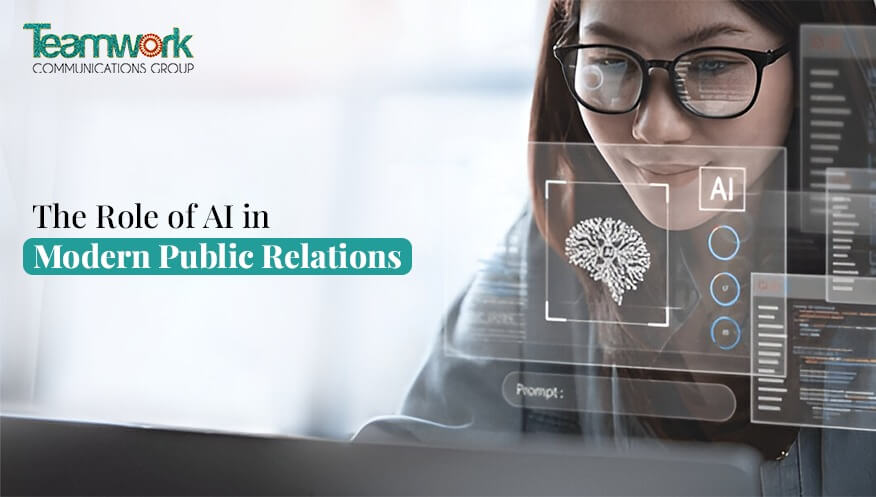The landscape of public relations (PR) is undergoing a major transformation, driven by the rapid advancements in artificial intelligence (AI). Beyond traditional press releases and media outreach, for instance, AI is enabling hyper-personalized PR campaigns by analyzing audience preferences. Moreover, AI tools are also helping in crisis communication by providing real-time insights. As PR agencies in India increasingly embrace AI to craft compelling narratives that resonate deeply with the public, the industry is witnessing a shift toward precision-targeted interaction.
It’s a Help in Repetitive Tasks
AI is a real game-changer in automating mundane, rules-based tasks so that PR professionals can devote more time to other important tasks, such as creative and strategic thinking. AI streamlines data entry processes, increasing accuracy and decreasing errors using technologies such as natural language processing and machine learning. As PR is a time-sensitive industry, moving hours away from administrative work to actual problem-solving, storytelling, and strategic advice helps both PR firms and their clients.
It’s Making Media Monitoring Easy
In PR, media monitoring provides a great deal of valuable information, helps in crisis prevention, guides business decisions, and helps improve a client’s brand image. AI-powered tools have transformed media monitoring, making it easier for PR professionals to track client mentions across various platforms. These tools allow for real-time analysis, aiding in the discovery of trends, crisis communications, and sharpening communication tactics. With actionable insights, AI enhances the ability to monitor brand perception.
It is Providing Data-Driven Public Relations Stories
AI is also transforming data-driven storytelling in PR by converting raw data into meaningful narratives that engage the attention of audiences. By making challenging information brief and engaging, AI-driven storytelling not only delivers information well but also facilitates its recall. This establishes a data-conscious PR culture where stories are written using insights and contextuality drawn from real-time data. AI processes the way data is understood, processed, and communicated and makes PR storytelling more effective, precise, and responsive to emerging trends.
It Has Evolved Influencer Marketing
In a world filled with content creators, how do brands choose the best influencers and create actual impact? That’s where AI comes into the picture, revolutionizing conventional influencer marketing in PR. AI processes huge volumes of data to determine the most appropriate influencers, their behavior, and the demographics of their audience, making sure brands work with influencers who speak to their target audience. It can predict campaign success by reviewing historical performance metrics, estimating engagement rates and possible reach, and enabling brands to make data-driven decisions. As influencer deceit emerges as a major issue, AI algorithms discover real influencers, thus promoting credibility and transparency. Moreover, AI personalizes content suggestions, assisting influencers in making content that supports the voice of the brand while connecting with their audience organically.
Ethical Considerations While Using AI in PR
AI is here to stay, but its moral dimensions cannot be overlooked. With nearly every other game-changing technology, the rapid rise of AI adoption has sometimes been fraught with missteps and roadblocks.
According to studies, organizations’ main concerns include building trust in AI-enabled systems and processes, ensuring data privacy and security, navigating system reliability issues, and ensuring data quality. While AI can assist with tasks like writing, it has major limitations. For example, it predicts text; it doesn’t verify facts, so it can’t always tell truth from fiction.
At a time when misinformation is already widespread, AI-based reporting without stringent supervision would only aggravate the credibility issue. Lacking authenticated sources, content created by AI can help disseminate incorrect information, which makes it a risk factor for sectors that are based on trust and precision. AI also becomes difficult to utilize because of its lack of transparency. Its process of making decisions is usually unclear, raising concerns about how information is sourced and manipulated.
Aside from misinformation and transparency, the biases of AI pose another issue. These systems can perpetuate and amplify the biases in their programming, distorting public opinion and credibility. Privacy issues add to the ethical problem—what becomes of the sensitive information AI handles? In the absence of definitive rules on data storage and use, intellectual property and confidentiality may be compromised.
Road Ahead
As AI continues to redefine PR with automation and data-driven insights, it can never be a substitute for human intelligence. The future of PR lies in a balanced approach where AI can be leveraged for efficiency and ethical oversight by humans can be the core. While AI technology continues to advance, professionals must remain proactive in line with industry standards.




